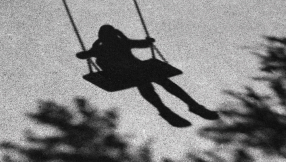Katy Perry appeared in court last week to give evidence in response to copyright infringement claims brought by Christian rappers over the 2008 song "Joyful Noise" featuring Lecrae.
Called to the stand at the trial in California, she denied that the beat in her 2013 hit single "Dark Horse", featuring Juicy J, came from "Joyful Noise".
The complaint from Christian rapper Flame and other artists who contributed to "Joyful Noise" accuses Perry of using the song without their permission.
"Defendants never sought or obtained permission from plaintiffs to use the 'Joyful Noise' song in creating, reproducing, recording, distributing, selling, or publicly performing defendants' song," the complaint reads.
"Plaintiffs never gave any of the defendants permission, consent, or a license to use 'Joyful Noise' for any purpose, including creation of a derivative work based on 'Joyful Noise'."
In her 35 minute testimony, Perry claimed that she had not heard of "Joyful Noise" or the artists involved in the song, CBS News report.
She did allege, though, that the beat used in "Dark Horse" had been presented to her by co-creators Dr Luke and Cirkut.
Christian rapper, Emmanuel Lambert Jr, who performs under the name of Da Truth, said during his appearance in court that "Joyful Noise" had been a big hit in the Christian market and could have been heard by Perry on online streaming platforms.
Last year, US District Judge Christina Snyder appeared to agree that this was a possibility when she wrote that the case should go to trial because the rappers had "demonstrated a triable issue of fact as to access because 'Joyful Noise' achieved critical success, including a Grammy nomination, and was readily available and viewed millions of times on YouTube and MySpace."
Giving evidence this week, musicologist Todd Decker said that there were "five or six points of similarity" between the two songs, including pitch, rhythm, texture, pattern of repetition, melodic shape and timbre, Billboard reports.
The trial continues.













